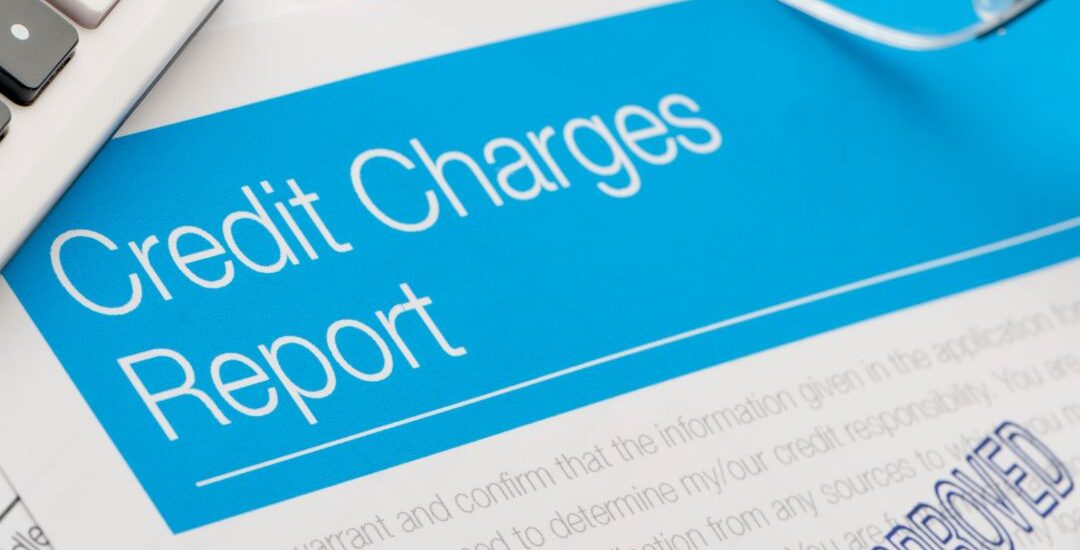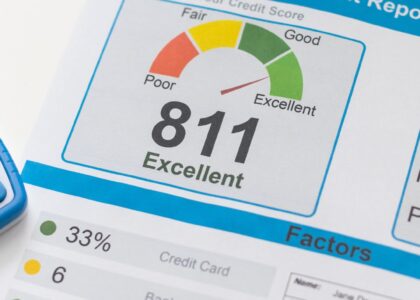In today’s financial landscape, where credit plays a pivotal role in achieving various life goals, your credit report holds significant power. It serves as a mirror reflecting your financial history, including the good and not-so-good aspects. One of the key concerns for individuals navigating the world of credit is the presence of collections on their credit reports.
At Credit Repair Bay Area, we understand the importance of not only comprehending but also managing the impact of collections on your Credit Report and Credit History. With over 19 years of experience, our mission has been to assist individuals, families, and businesses in taking control of their financial destinies. We don’t just fix your credit; we empower you to build it, ensuring that you achieve the best possible results and the financial peace of mind you deserve.
In this article, we delve into the world of collections on your credit report, addressing common questions and concerns. We’ll explore the possibility of removing collections, the implications of leaving them unaddressed, and how Credit Repair can play a pivotal role in your journey towards a healthier credit profile.
So, let’s embark on this informative journey together, where you’ll gain insights into collections, their impact, and the strategies available to take charge of your financial future.
Stay with us as we uncover the truth about collections on credit reports and guide you through the steps to financial recovery.
Can Collections Be Removed from Credit Report?
Collections accounts on your credit report can indeed be removed, but the process isn’t always straightforward. This is where the expertise of Credit Repair professionals like those at Credit Repair Bay Area can be invaluable. In this section, we’ll explore the various approaches to dealing with collections on your credit report.
Dispute Inaccuracies
One of the initial steps in addressing collections on your credit report is to review the information for inaccuracies. Mistakes can happen, and sometimes, collections entries may contain errors such as incorrect dates, amounts, or even inaccurately reported debts.
Here’s how you can dispute inaccuracies:
- Review your credit reports: Obtain copies of your credit reports from all three major credit bureaus – Experian, Equifax, and TransUnion.
- Identify inaccuracies: Carefully review each collections entry and look for discrepancies or errors.
- File a dispute: If you find inaccuracies, you can file a dispute with the respective credit bureau. They will investigate the matter and remove the entry if it’s found to be incorrect.
Negotiate a Pay-for-Delete
Another approach to removing collections is negotiating a pay-for-delete agreement with the collection agency. This is a strategic way to address collections while also working towards repairing your credit.
Here’s how it works:
- Contact the collection agency: Reach out to the collection agency responsible for the debt. You can often find their contact information on your credit report.
- Negotiate a deal: Offer to pay the debt in exchange for the removal of the collections entry from your credit report. It’s essential to have a clear, written agreement outlining the terms of the deal before making any payment.
- Document everything: Keep records of all communication and payments made, as they may be necessary if any issues arise.
Wait for It to Fall Off
Collections entries typically have a limited lifespan on your credit report. The Fair Credit Reporting Act (FCRA) mandates that most negative items, including collections, can only remain on your credit report for seven years from the date of the initial delinquency. After this period, they should be automatically removed.
However, it’s crucial to note that some states have their own statutes of limitations, which can affect how long collections remain on your report. This emphasizes the importance of understanding your local laws and regulations.
In the next section, we’ll delve deeper into what collections on credit reports entail. Understanding the nature of these entries is vital as you navigate the journey to improve your credit history and financial well-being.
What Are Collections on Credit Report?
To navigate the world of credit repair effectively, it’s essential to grasp the concept of collections on your credit report. Collections entries are a significant aspect of your Credit History, and understanding them is key to improving your financial standing.
Defining Collections on Credit Reports
Collections on a credit report refer to unpaid debts that have been transferred to a collection agency by the original creditors. When you fall behind on payments for credit cards, loans, medical bills, or other debts, your creditors may eventually decide to enlist the help of third-party collection agencies to recover the money owed to them.
Here’s how the process typically unfolds:
- Delinquent Account: You miss one or more payments on a credit account, leading to a delinquent status.
- Creditor’s Actions: After a period of non-payment, the original creditor may decide to write off the debt as uncollectible. They then sell or assign the debt to a collection agency.
- Collections Entry: The collection agency now owns the debt and reports it as a collections entry on your credit report. This entry is a red flag to future lenders and creditors, signaling that you have a history of not repaying debts.
Impact on Your Credit Report and Credit History
Collections entries have a detrimental effect on your Credit Report and Credit History. When they appear on your credit report, they can significantly lower your credit score, making it more challenging to obtain new credit or loans. Lenders view collections as a sign of financial risk, which can lead to higher interest rates or even outright denials of credit applications.
Additionally, having collections on your credit report can impact various aspects of your financial life, including:
- Employment: Some employers review credit reports as part of their hiring process, and collections entries can raise concerns about financial responsibility.
- Housing: Landlords often consider credit history when renting properties. Collections entries may make it more challenging to secure a desirable rental.
- Insurance Premiums: Insurers may use credit information to determine insurance premiums. Collections can result in higher insurance costs.
- Utilities and Services: Some utility providers and service companies may require larger deposits or deny services based on your credit history.
Understanding the significance of collections on your credit report is the first step towards taking control of your financial future. In the next section, we’ll explore how long collections stay on your credit reports, shedding light on the timeline you can expect for their impact to lessen.
How Long Do Collections Stay on Credit Reports?
When it comes to collections on your credit reports, one common question that arises is, “How long will they linger and impact my credit?” The duration that collections entries remain on your credit reports can vary depending on the type of debt and your location. Let’s delve into the timelines associated with collections:
Credit Card Debt
Collections resulting from credit card debt generally stay on your credit report for up to seven years. This seven-year clock typically starts ticking from the date of the initial delinquency, which is when you first missed a payment on the credit card account. After seven years, the collections entry should be automatically removed from your report.
Medical Debt
Medical collections follow a similar pattern to credit card debt. They can also remain on your credit report for up to seven years from the date of the initial delinquency. It’s important to note that the reporting period for medical collections doesn’t distinguish between small and large medical bills, so even relatively minor medical debts can impact your credit for this duration.
Other Types of Debts
Collections related to other types of debts, such as utility bills, personal loans, or retail accounts, may have varying reporting periods. The specific timeline can be influenced by state laws and the agreements between the creditor and collection agency.
It’s essential to remember that the reporting clock starts from the date of the initial delinquency, not from the date the collection agency acquired the debt. Also, some states may have their own statutes of limitations that affect how long collections entries can be reported, which can vary from the seven-year federal standard.
As collections entries age, their impact on your credit score diminishes. However, even during their presence on your credit report, you can take steps to mitigate the damage and work towards credit repair. In the next section, we’ll explore just how bad your credit can be after collections and the role of Credit Repair in improving your creditworthiness.
What Happens If You Never Pay Collections?
Ignoring collections is not a recommended strategy, as it can lead to a series of consequences that have a lasting impact on your financial well-being. In this section, we’ll delve into what can happen if you choose not to address collections on your credit report.
Legal Action
One of the most significant risks of ignoring collections is that the collection agency or the creditor may take legal action against you to recover the debt. This legal action can result in:
- Wage Garnishment: If the collection agency obtains a judgment against you, they may have the right to garnish your wages, meaning a portion of your paycheck will be automatically withheld to satisfy the debt.
- Bank Account Levy: In some cases, the collection agency can obtain a court order to levy your bank accounts, seizing funds to pay off the debt.
- Liens and Asset Seizure: A judgment against you could lead to liens on your property or even the seizure of assets to cover the debt.
Extended Impact on Credit
Collections entries can remain on your credit report for a significant period, typically up to seven years from the date of the initial delinquency. If you choose not to address collections, this negative mark will persist, continually affecting your credit score and creditworthiness.
Difficulty Obtaining New Credit
Lenders and creditors often view collections as a sign of financial irresponsibility. If you have collections on your credit report, it can be challenging to qualify for new credit, such as credit cards, loans, or mortgages. And if you are approved, you may face higher interest rates and less favorable terms.
Impact on Financial Opportunities
Ignoring collections can also impact various aspects of your financial life, including:
- Employment: Some employers conduct credit checks during the hiring process. Collections on your credit report may raise concerns about your financial stability.
- Housing: Landlords often review credit history when evaluating rental applications. Collections can make it more difficult to secure a rental property.
- Insurance Premiums: Insurers may use credit information to determine insurance premiums. Collections can result in higher insurance costs.
The Importance of Taking Action
Given the potential legal and financial consequences, it’s clear that ignoring collections is not a viable option. Instead, it’s crucial to take proactive steps to address collections on your credit report. Whether through negotiations, payment arrangements, or credit repair services like those offered by Credit Repair Bay Area, there are ways to manage and resolve collections to protect your financial future.
Can You Ignore Collections?
While the idea of ignoring collections may cross your mind, it’s not a recommended approach when it comes to managing your financial health. In this section, we’ll address the question of whether you can ignore collections and provide insights into the best course of action.
Not a Viable Strategy
Ignoring collections is not a viable strategy for several reasons:
- Legal Consequences: As mentioned earlier, ignoring collections can lead to legal action, including wage garnishment, bank account levies, and asset seizures. Legal proceedings can further damage your financial stability and result in added stress.
- Extended Impact: Collections can remain on your credit report for up to seven years. During this time, they continue to negatively affect your credit score and limit your financial opportunities.
- Missed Opportunities: By ignoring collections, you miss the chance to negotiate settlements or pay-for-delete agreements with collection agencies. These arrangements can help you resolve the debt while potentially minimizing the impact on your credit.
Taking a Proactive Approach
Rather than ignoring collections, taking a proactive approach is the key to managing and resolving these issues effectively. Here are steps you can consider:
- Review Your Credit Reports: Obtain copies of your credit reports from all three major credit bureaus (Experian, Equifax, and TransUnion) to get a clear understanding of the collections entries.
- Dispute Inaccuracies: If you identify inaccuracies in the collections listings, dispute them with the respective credit bureaus. Correcting errors can improve your credit profile.
- Negotiate with Collection Agencies: Contact the collection agency responsible for the debt and explore options for resolving the debt. Negotiating a settlement or a pay-for-delete agreement can be beneficial.
- Seek Professional Help: Consider working with a reputable Credit Repair service like Credit Repair Bay Area. Credit repair professionals can guide you through the process of addressing collections and other negative items on your credit report.
- Create a Plan: Develop a financial plan to manage your debts, make on-time payments, and improve your credit habits. This can help you rebuild your credit over time.
The Role of Credit Repair
Credit Repair services can be particularly valuable in addressing collections and improving your credit history. Experienced professionals can navigate the complexities of credit reporting, dispute inaccuracies, and negotiate with collection agencies on your behalf.
In conclusion, while you technically have the option to ignore collections, it’s not a wise choice considering the potential legal consequences and the long-term impact on your credit and financial well-being. Instead, taking a proactive approach, which may include seeking the assistance of Credit Repair experts, can lead to better outcomes and a path toward financial recovery.
In the world of personal finance and credit management, collections on your credit report are a reality that many individuals face. We’ve explored the ins and outs of collections, answering crucial questions and shedding light on the impact they can have on your financial life.
From whether collections can be removed to understanding what collections mean for your credit history, we’ve covered essential ground. It’s clear that collections are not something to be ignored. Ignoring collections can lead to legal consequences, prolonged damage to your credit score, and missed opportunities for financial recovery.
Here are some key takeaways from this article:
- Collections can be removed: There are strategies, such as disputing inaccuracies and negotiating pay-for-delete agreements, that can help you address collections on your credit report.
- Understanding collections is crucial: Knowing what collections mean and their impact on your credit history is essential for financial success.
- Timelines vary: The duration that collections stay on your credit report depends on the type of debt and your location. Credit card debt and medical debt collections typically remain for up to seven years.
- Credit score impact is significant: Collections can substantially lower your credit score, making it harder to access new credit or loans.
- Ignoring collections is not advised: Ignoring collections can lead to legal actions, prolonged credit damage, and missed opportunities to resolve the debt.
- Proactive steps are essential: Taking action, whether through disputes, negotiations, or assistance from Credit Repair professionals, is crucial to managing collections effectively.
At Credit Repair Bay Area, we understand the complexities of credit reporting, collections, and the path to credit recovery. With over 19 years of experience, our dedicated team is here to help you regain control of your financial destiny. We don’t just repair credit; we empower you to build it.
Remember, collections on your credit report may seem daunting, but they are not insurmountable obstacles. With the right strategies and expert guidance, you can address collections, improve your credit history, and secure a brighter financial future.
If you’re ready to take control of your credit and embark on a journey towards financial wellness, don’t hesitate to reach out to our team at Credit Repair Bay Area. Your financial peace of mind is within reach, and we’re here to help you achieve it.
Thank you for joining us on this informative journey through the world of collections on credit reports. We wish you success on your path to credit recovery and financial prosperity.





